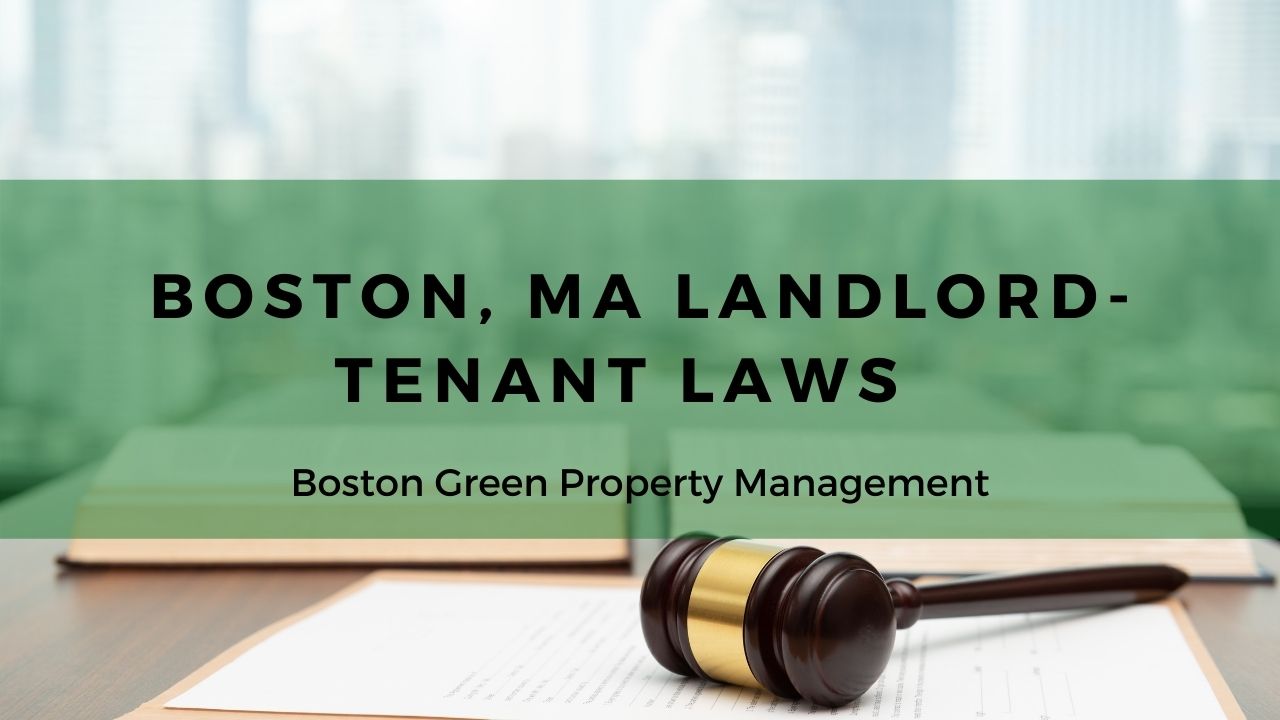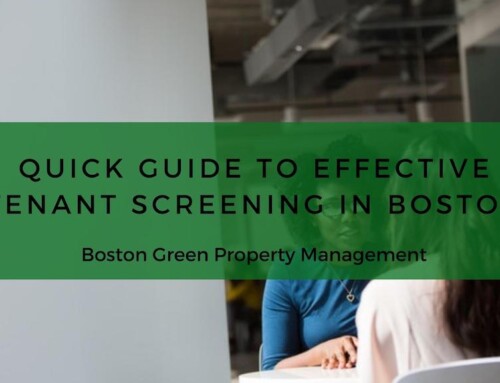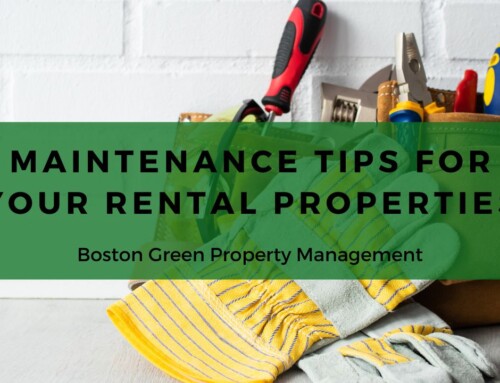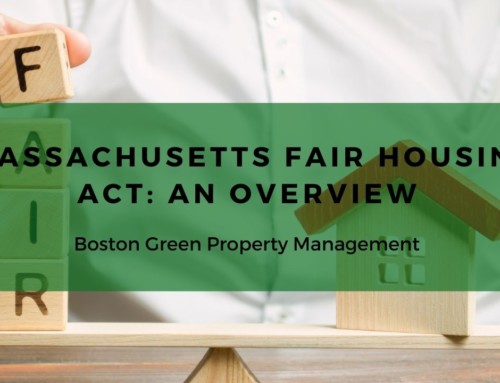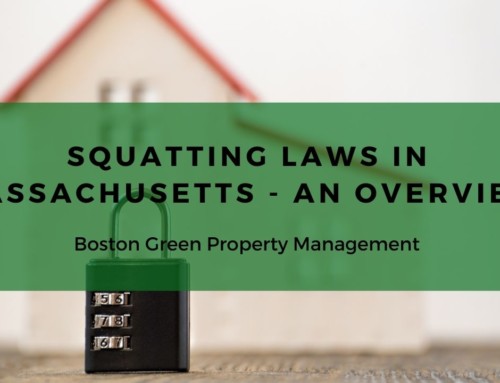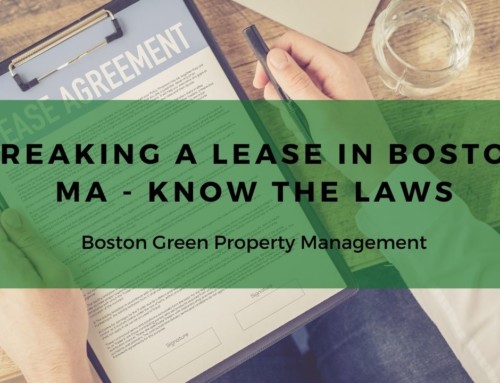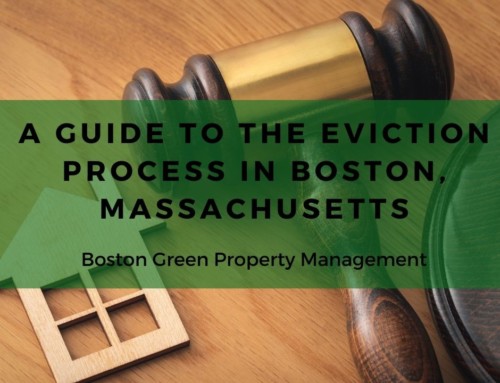Boston has an overwhelmingly large population of renters. Out of the 684,379 residents that call the city home, over 60 percent are renters. This is great news for people looking to invest in Boston real estate!
As a Boston landlord, you’ll have many responsibilities like abiding by Massachusetts landlord-tenant law. Doing so can help prevent a myriad of potential issues between you and your tenant.
Required Landlord Disclosures in Boston, Massachusetts.
Before a tenant can rent your property, you must disclose certain information to them. In Boston and indeed the entire state, you must let tenants know of the following:
- You must let tenants know of the presence of lead paint. Federal law requires landlords to disclose to their tenants information regarding the use of lead paint and known hazards before signing the lease.
- You are required to provide your tenant with the name and address of the person tasked with managing the property. This can be the property owner or a property management company.
- You must disclose information regarding the security deposit amount, and the tenant’s security deposit rights. Please note that the maximum security deposit you can charge your Boston tenants shouldn’t exceed one month’s rent.
- If your tenant so requests, you must supply them with the name of the property’s insurance company. You must do so within a period of 15 days after being served with the written request.

Boston Tenant Rights & Responsibilities
Your tenants have certain rights under federal, state, and local tenancy laws. Your tenant has a right to:
- Live in a property that meets all habitability standards.
- Live in a safe and quiet premise devoid of unnecessary disturbances and/or annoyances.
- Join or organize a tenants’ union to advocate for the rights of tenants.
- A written notice whenever the landlord wishes to make changes to the terms of the lease agreement.
- Continue living in their rented premises until the landlord has followed the proper eviction process.
- Fair treatment devoid of any discrimination in regards to their protected classes.
- Be notified when a landlord is seeking to access their rented premises.
With these rights, however, come responsibilities. Your Boston tenants have a responsibility to:
- Not cause any disturbances to fellow tenants or neighbors.
- Perform repairs on damages they have caused due to negligence or carelessness.
- Keep the fixtures clean and sanitary.
- Keep the unit in a clean and habitable condition.
- Pay rent on time, every time.
- Notify the landlord whenever staying out of town for an extended period of time.
Boston Landlord Rights & Responsibilities
As a landlord in Boston, Massachusetts’ landlord-tenant law gives you the following set of rights. A right to:
- Require a security deposit from your tenant.
- Make changes to the terms of the lease agreement – so long as you have consent from your tenant.
- Be notified when a tenant plans on being out of town for an extended time period.
- Access the tenant’s rented premises to carry out important duties, such as inspect the unit to show the unit to prospective tenants.
- Be notified when the tenant is looking to vacate their premises.

As for responsibilities, as a landlord you’re responsible for:
- Handling all rental-related matters in good faith.
- Not retaliating against your tenant or misuse the eviction process.
- Respecting the privacy of your tenants.
- Making required disclosures to rental applicants and tenants.
- Following fair housing laws.
- Abiding by the terms listed in the lease or rental agreement.
A Basic Overview of Massachusetts Landlord-Tenant Law
- Security Deposits
There is a limit to how much you can charge your Boston tenant for a security deposit. You must charge then no more than one month’s rent.
When they leave after the expiry of their lease agreement, you must return their deposit within 30 days. Of course, you have a right to make legitimate deductions from the deposit. Allowable deductions must be those that exceed normal wear and tear.
Wrongfully withholding your tenant’s security deposit may attract penalties including, being liable to pay up to 3X the original value of the security deposit.
- Tenant Evictions
When a tenant signs a lease agreement with you, they have a right to remain in their rented premises until the lease expires. The only exception to this general rule is if the tenant seriously violates the terms of the agreement.

Common lease violations in Massachusetts include nonpayment of rent and failure to follow lease terms. Regardless of the violation, you must follow the state’s eviction process to the letter.
The process must start with serving the tenant with an eviction notice. For nonpayment of rent, for example, you must serve the tenant with a 14-Day Notice to Pay or Quit. If the tenant obliges, then no further action is required on your end. But if they don’t take either action, then you can proceed to file for their removal in court.
- Housing Discrimination
The Fair Housing Act bars all forms of discrimination towards tenants based on protected characteristics. Therefore you cannot discriminate against someone based on their religion, national origin, race, age, disability, gender identity, and sexual orientation.
The state’s Attorney General Civil Rights Division handles all complaints regarding housing discrimination.
- Landlord Entry
Massachusetts law doesn’t require landlords to notify their tenants prior to accessing their rented units. As a landlord, you’re assumed to have the right of entry whenever it becomes necessary.
That said, reasons to enter your tenant’s premises must be legitimate, otherwise, you risk facing a harassment lawsuit. Common reasons include:
- To show the property to prospective tenants, lenders, or buyers.
- To inspect the unit for damage.
- In the event of an emergency.
- If you have sufficient reasons to believe the tenant has abandoned the unit.
- Under a court order.
The timing of the entry must also be within reason. For example, anywhere between 8 AM and 5 PM.

Summary:
Hopefully, now you have a bit of a stronger understanding of Massachusetts landlord-tenant law. When renting out a home, you should also familiarize yourself with other rental laws such as squatter’s rights, security deposit law, and rent increase regulations.
Do you require expert help? Get in touch with Boston Green Property Management today! We’re happy to start assisting you with all your property management needs.
Disclaimer: This information isn’t a substitute for professional legal advice. Laws change frequently therefore the information in this post might not be up-to-date when you read it. For questions or edits, get in touch with us.


